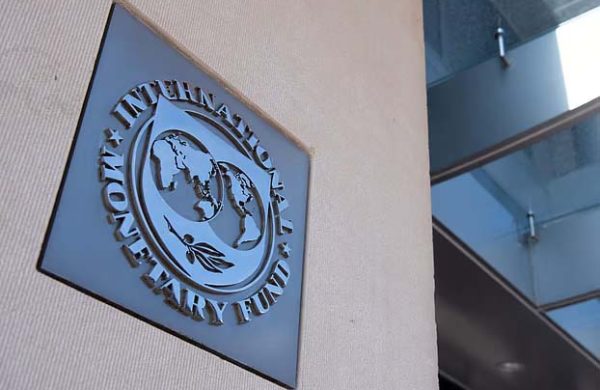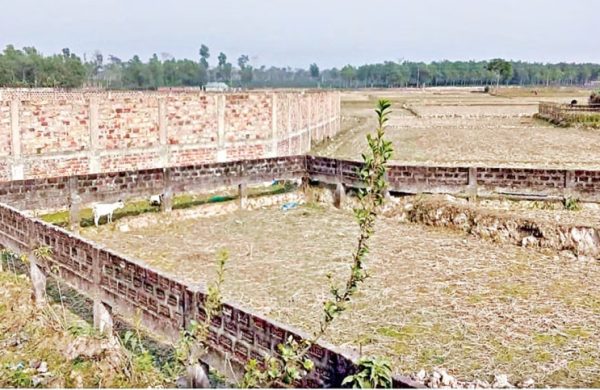Bangladesh lags behind in meeting conditions in 4 areas
- Update Time : Friday, April 18, 2025

TDS Desk:
Bangladesh is falling behind in meeting four key conditions required to receive the next two tranches (the fourth and fifth) of a USD 4.7 billion loan from the International Monetary Fund (IMF).
The areas of concern include weak revenue growth, a non-market-based exchange rate, insufficient reduction in subsidies, and a lack of expected progress in the banking sector.
These issues were highlighted during a briefing by the visiting IMF delegation on Thursday, following a two-week review mission.
The IMF did not issue a final verdict on the release of the upcoming tranches but stated that discussions are ongoing. If progress is satisfactory, the funds could be disbursed by the end of June.
The briefing, held at Bangladesh Bank, was attended by Chris Papageorgiou, Head of the Development Macroeconomics Section at the IMF’s Research Department, along with nine other delegation members.
Prior to the briefing, the IMF mission held meetings with various government departments, including Finance Adviser Salehuddin Ahmed, from 6 April through Wednesday.
Expressing the IMF’s willingness to cooperate with the people and government of Bangladesh, Papageorgiou noted that further discussions will continue at the IMF-World Bank Spring Meetings in Washington, D.C., scheduled for 21–26 April.
Papageorgiou acknowledged that Bangladesh’s economy is facing multiple challenges due to global uncertainties. In the first half of the current fiscal year, gross domestic product (GDP) growth declined to 3.3 per cent, down from 5.1 per cent during the same period in the previous year.
He attributed the slowdown to political unrest, tight monetary policies, and investment uncertainty. However, inflation has eased from a decade-high of 11.7 per cent to 9.4 per cent, though this remains significantly above the Bangladesh Bank’s target range of 5 to 6 per cent.
While foreign exchange reserves and rates are currently stable, Papageorgiou noted that a more flexible exchange rate regime could further enhance economic stability.
In a press statement, the IMF shared its broader assessment of Bangladesh’s economic situation and key recommendations.
Citing the country’s low tax-to-GDP ratio, the Fund stressed the need for comprehensive tax reforms. It recommended clearly distinguishing between tax policy and tax administration, reducing tax exemptions, simplifying policies, and identifying sustainable ways to boost revenue.
A well-designed revenue strategy would allow the government to allocate more resources to social welfare and infrastructure investment.
The IMF also underscored the need for legal reforms and effective asset quality assessment to restore the banking sector’s health.
The global lender called for greater independence and improved governance of Bangladesh Bank, along with stronger measures against money laundering and terrorist financing.
Additionally, the IMF urged authorities to reduce non-performing loans, improve oversight, and eliminate policy-making opacity in the banking sector.
In the question and answer session of the briefing, IMF officials stressed on maintaining continuity with firm stand in implementation alongside planning. They pointed out that it was essential to ensure sustainable investment and economic planning to face risks related to climate change.
In response to a question, Papageorgiou said the discussion prioritised revenue growth, making exchange rate market-based and improving the banking sector.
He, however, mentioned that there will be more discussion in Washington.
When Chris Papageorgiou was asked whether they had any recommendation to change policy interest rate from its current 10 percentage point, he left the matter on the discretion of the central bank governor.
The IMF’s loan programme for Bangladesh was started on 30 January 2023 and the country got USD 476.3 million as the first tranche of the USD 4.7 billion loan. Bangladesh received USD 681 million as the second tranche of the loan in December that year and USD 1.15 billion in the third tranche in June last year.
That means, Bangladesh has received a total of USD 2.31 billion as loan from the IMF.
Economists consider the IMF loan as important for the stability of the country’s economy. According to them, if the IMF does not release the loan, others also will be discouraged while the global financial organisations could decrease the credit rating of Bangladesh.
Former lead economist of World Bank’s Dhaka Office, Zahid Hussain that even 75 per cent achievement of the reforms IMF seeks in revenue generation, currency exchange rate, subsidy and improvement in the banking sector’s performance is not enough. You need to achieve 100 per cent to go to the IMF board.
“But I don’t think the disbursal of the IMF’s loan would get stuck,” he remarked.
Zahid Hussain further said that they are satisfied with the advancement made in the banking sector. Another team of the IMF will arrive in the country in May. We might receive a positive message at that time.


















